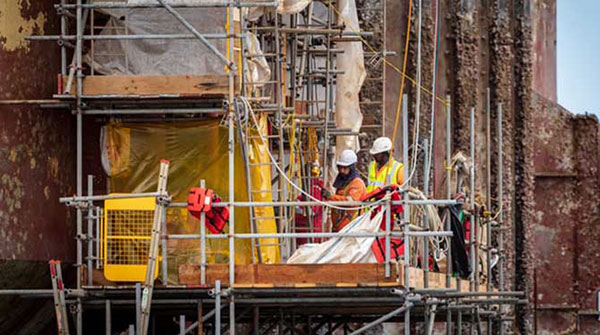By Mark Milke
and Ven Venkatachalam
Canadian Energy Centre
A few years ago, one of us took an early morning taxi ride in Vancouver. The driver, originally from Latin America, began to complain – without prompting – about how crazy it was that local anti-oil-and-gas protesters were trying to block the Trans Mountain pipeline expansion.
It was clear the driver instinctively understood that the world was going to need oil and natural gas for the foreseeable future. It was also clear he grasped that the resource sector, including oil and gas, was a major contributor to the Canadian economy.

Mark Milke
He was correct about the contribution of the oil and gas sector to Canada, which supplied $493 billion in taxes and other government revenue between 2000 and 2018. That was bigger than the tax contribution of the construction ($276 billion) and real estate sectors ($193 billion) in the same years.
And oil and gas, measured as a percentage of nominal gross domestic product, is three times the size of the automotive sector and nearly seven times that of the aerospace sector.
The taxi driver also sensed that the oil and gas sector matters to Canadians in other ways, immigrants included.
In a new fact sheet just released by the Canadian Energy Centre, we demonstrate that landed immigrants have done well in Canada’s oil and gas industry.
For starters, 15,600 landed immigrants work in oil and gas extraction, not including on pipelines, in refineries, or in financing related to the sector. That’s nearly double those employed in oil and gas extraction in 2006, the earliest year for which comparisons are available.
Such immigrants to Canada also earn healthy incomes. The average weekly wage for landed immigrants in Canada in 2020 was $1,082 in agriculture, forestry, fishing and hunting; $1,262 in manufacturing; $1,346 in construction; $1,792 in utilities; and a whopping $2,161 in oil and gas extraction.

Ven Venkatachalam
So landed immigrants made twice as much in oil and gas extraction last year as did their counterparts in agriculture or fishing jobs. Those are good jobs but nowhere nearly as well paying as getting oil and gas out of the ground, into a pipeline, to a refinery, and then to Canadians and others for use in everything from plastics for smartphones to powering hospitals, schools and homes.
Immigrants would also be attracted to a career in oil and gas extraction because of increasing wages.
Between 2006 and 2020, the average weekly wage rose by $200 in agriculture, forestry, fishing and hunting, and by $265 in utilities. Manufacturing wages rose by $291 in the same period, with construction wages up $357. In the oil and gas extraction sector, weekly wages for landed immigrants rose by $711 between 2006 and 2020, or twice as fast as in construction.
Depending on their education and specialization, immigrants to Canada will find jobs in any number of industries – from the service sector, to agriculture and to oil and gas extraction – if they have training in such things as engineering or accounting.
Indigenous people ready to do business with oil and gas by Karen Ogen-Toews
That those with such qualifications would be attracted to and a fit for oil and gas extraction makes sense from any number of perspectives. It also makes sense for Canada as a whole, as jobs in the oil and gas extraction sector can’t always be filled by existing workers.
So jobs in the oil and gas extraction sector makes sense for existing and new Canadians – something the taxi driver well knew.
Mark Milke and Ven Venkatachalam are with the Canadian Energy Centre, an Alberta government corporation funded in part by carbon taxes. They are authors of the report, New Canadians and the Oil and Gas Extraction Sector.
Mark and Ven are among our Thought Leaders. For interview requests, click here.
The views, opinions and positions expressed by columnists and contributors are the authors’ alone. They do not inherently or expressly reflect the views, opinions and/or positions of our publication.
© Troy Media
Troy Media is an editorial content provider to media outlets and its own hosted community news outlets across Canada.



